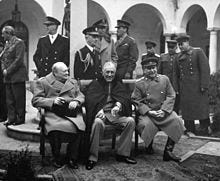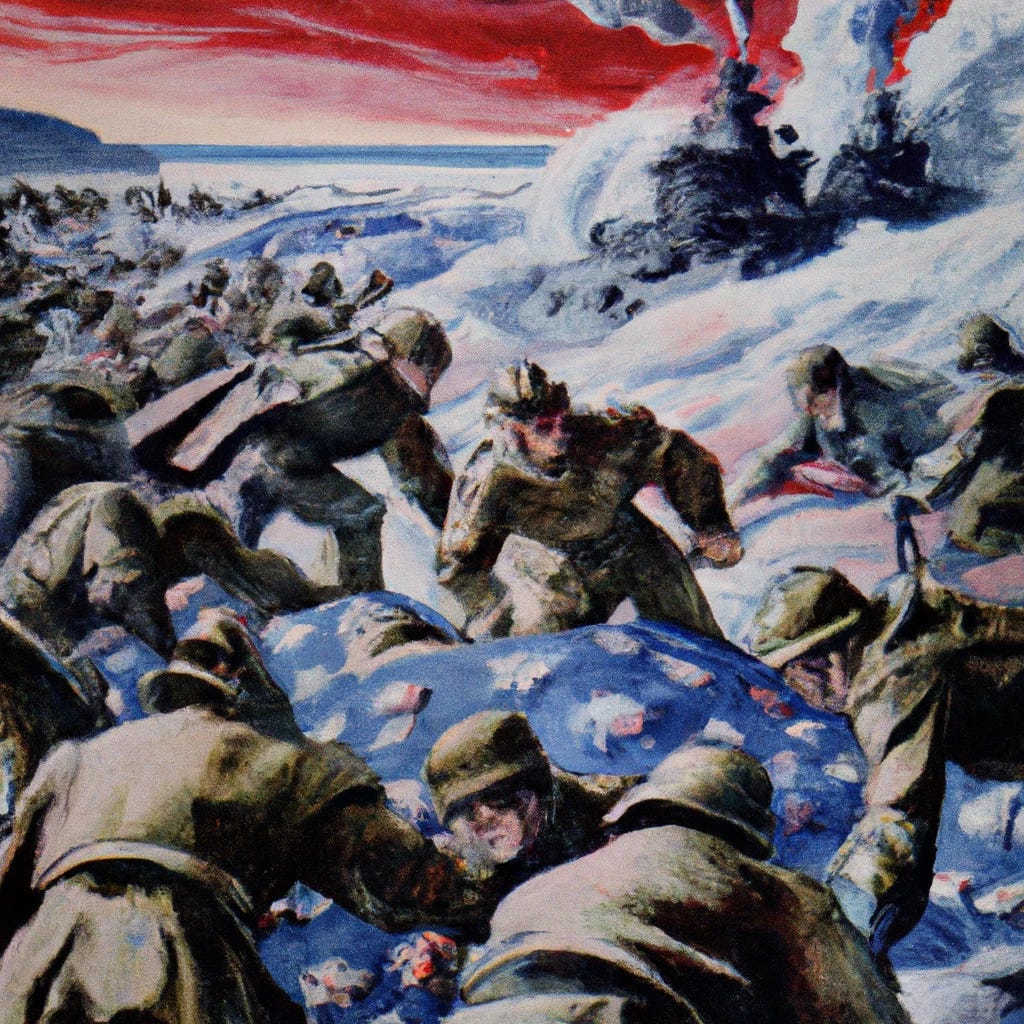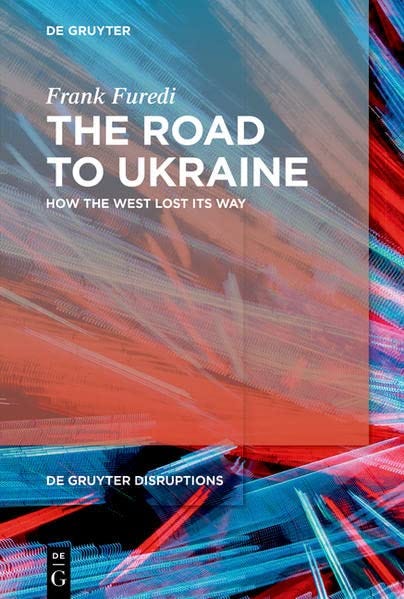Yalta Conference February 1945
At some point in post Second World War Two era, the leaders of Europe fell victim to the illusion that they were relieved of the burden of history. When in 2012, the Nobel Peace Prize was awarded to the European Union, many thought that the bad old days of suicidal wars had given way to a new conflict-free era. At the time, the then President of the European Council, Herman Van Rompuy, stated that it was recognition for the work of ‘the biggest peacemaker in history’.
Van Rompuy and his colleagues were under the spell of a narrative which emerged in the 1950s at the height of the Cold War. This narrative told a tale of how the original member states of the EU emerged phoenix-like from the ashes of the war to renounce nationalism as a basis for conducting relations between states. According to this version of events, European unity was responsible for transcending the national conflicts that had led to numerous wars in the past.
The former President of the European Parliament, Martin Schultz, bragged that the creation of the European Union has led to seven decades of peace because ‘we created a structure where war between members [of the] European Union is impossible’. What Schultz meant was that European integration had served to eliminate the tension between Germany and France that was at the heart of so many past conflicts and wars. But whether those seventy years can be called a decade of peace is open to question.
That most Europeans enjoyed over 70 war-free years lent credibility to the conviction that they were now relieved of the curse of the past. The belief that Europe had transcended its dark past was clearly evoked by Francis Fukuyama in his influential text, The End of History and the Last Man (1989), where he wrote that the ‘European Union more accurately reflects what the world will look like at the end of history than the contemporary United States’.
This orientation towards the past, which encouraged an outlook best described as historical amnesia, assumed that the conflicts that had done so much to destabilise Europe had been resolved. For Fukuyama, The End of History projected a condition where there is ‘no struggle or conflict over large issues’ and, therefore, ‘no need for generals or statesmen’.1 Numerous contributors agreed and predicted that global economic integration would make wars between nations less likely. Others reflected on how European integration offered a permanent ‘solution to war’.2
Some scholars went so far as to claim that war has become obsolescent.[v] In his The Remnants of War, John Mueller contends that developed nations have gone beyond war, and militarised conflict has tended to be reduced to ‘thugs’ who are residual combatants. 3This form of magical thinking about wars has led some international relations experts to distinguish between old and new ones. The kind of war raging in Ukraine is characterised as an ‘old war’ by Mary Kaldor. She describes old wars as a ‘stereotyped version of war drawn from the experience of the last centuries in Europe’. These wars – which are not supposed to happen – are the ones between two sovereign states. From this perspective, wars are supposed to occur in Africa and the Middle East but not in Europe! In recent decades the assumption that Europe is a war-free zone conveyed the illusion of a post-geopolitical era. One commentary titled ‘Why has war become obsolete in Europe?’ noted in 2010, ‘it is quite remarkable that a continent, which for much of its modern history was embroiled in internecine warfare, now seems to be one of the most stable regions of the world.
Wars Obsolete?
The idea that old wars are an anachronism even captured the imagination of policymakers in charge of their nation’s security. In 2014, the American Secretary of State John Kerry reacted to Russia’s first invasion of Ukraine by stating that Moscow was behaving like it was in the 19th century. ‘You just don’t in the 21st century behave in 19th century fashion by invading another country on completely trumped up pre-text’, Kerry said. Kerry’s naïve association of armed aggression with the 19th century showed a profound misunderstanding of the past and an alarming ignorance of realpolitik.
Since the invasion of Ukraine, all the utopian and impressionistic accounts acclaiming the obsolescence of wars have given way to concerns about the return of old-fashioned military conflicts between nation-states. ‘War in Europe is no longer unthinkable’ concludes two international relations experts, Ivan Krastev and Mark Leonard. This sentiment is echoed by authors of ‘An Appeal for Civic Action in Europe and Beyond’, who assert that ‘another war in Europe no longer seems improbable or unlikely’.
One of the momentous consequences of Russia’s invasion of Ukraine is that it has forced thinking people to look the Past straight in the face. How else could any intelligent person make sense of this unexpected and apparently senseless conflict?
Geopolitical Irrelevance
As we head towards the end of 2022, the illusion that Europe has become a war-free zone has left the continent unprepared for conflicts like the war in Ukraine. When the war erupted in February, it appeared that much of Western Europe had unconsciously disarmed itself – morally as much as militarily. The development was most strikingly evident in Germany – the supposed leader of the European Union.
In Germany, the desire to break free from the past has encouraged a complacent and conformist tendency that encourages sections of society to believe that they left behind the bitter conflicts that frequently arose in the past. As one acute observer of the delusions and naivety shown particularly by young Germans towards historically rooted geo-political questions noted, they have become ‘intellectually and practically disarmed’. Ulrike Franke, a senior policy fellow at the European Council on Foreign Relations, noted that amongst her fellow German millennials, there is a scepticism towards the legitimacy of geopolitics, an ‘inability to think in terms of power and interest and a rejection of the military as an instrument of politics’.
The low status that German society accorded to its military was demonstrated during the week leading up to the invasion of Ukraine. A lack of resolve to stand up to Russia was unambiguously communicated by the German Chancellor, Olaf Scholz. A few days before the invasion, he flew to Moscow to encourage a diplomatic resolution. When he returned to Germany, he assumed the role of Putin’s messenger. He urged the Ukrainian President, Volodymyr Zelensky, to accept Russian demands to negotiate over the so-called separatist republics in Donbas.
The supine stance adopted by the German Government was met with a sense of embarrassment by some of this nation’s military leaders. Germany’s highest-ranking military officer, Alfons Mais, went public to call into question his nation’s army’s combat readiness. He wrote in a Linked-in post that the ‘Bundeswehr, the army that I am privileged to lead, is more or less bare. The options that we can offer the politicians to support the alliance are extremely limited’. In a tone of frustration, he declared, ‘we all saw it coming and were not able to get through with our arguments, to draw the conclusions from the Crimean annexation and implement them. This does not feel good! I am pissed off!’.[xiv]
The loss of geopolitical clarity means that Europe’s role in global affairs has become seriously undermined. During the months leading up to the invasion of Ukraine, the leaders of European nations understood that they were reduced to the role of extras while the US and Russia were involved in talks and diplomatic manoeuvres. Washington was calling all the shots, and when it unilaterally decided to send 3000 troops to Poland and Romania in February 2022, it made no pretence of consulting with the European Union.
In January 2022, The New York Times reported that ‘U.S. and Russia Will Discuss European Security, but Without Europeans’ in Geneva. It added that these bilateral talks had revived ‘old fears that the two Cold War powers will forge a deal on their own’.[xv] Concerns about such a deal were articulated by the EU’s foreign policy chief, Josep Borell Fontelles, when he visited Ukrainian troops in the Donbas region. ‘We are no longer in the Yalta times’, he said, ‘when the great powers met in 1945 to divvy up postwar Europe’. He insisted that the ‘European Union is the most reliable partner of Ukraine,’ and it ‘cannot be a spectator’ while the United States, NATO and Russia discuss European security.
As it turned out, the EU remained a spectator during the events that led to the invasion of Ukraine. And what happened in Yalta in February 1945 continues to cast a dark shadow over events in Ukraine. East Europeans regarded Yalta as an act of betrayal by Great Britain and the United States that sacrificed them on the altars of Great Power interests. Forced to become vassal states of the Soviet Empire, many East and Central Europeans still suspected that the West could not be trusted.
The tensions between Poland and Germany that erupted during the war in Ukraine are integral to the legacy of the continent's division after Yalta. Many in Central Europe and the Baltic states are concerned that when push comes to shove, France and especially Germany may betray them yet again. As a report in The New York Times outlined, the criticism of German ‘hesitancy toward helping Ukraine, and of France’s early willingness to push for peace talks at Ukraine’s expense, is not limited to Poland but is also prevalent in central, eastern and northern Europe, although less charged’.
The fragile underpinning of European unity was highlighted by Mr Piotr Buras of the European Council on Foreign Relations when he stated that ‘there is a lot of talk about Western and E.U. unity and cooperation on Ukraine, but at the same time this war has triggered a significant wave of criticism of Western Europe in Poland and the Baltics’. He added that ‘it deepened the skepticism and criticism, especially of Germany and France, and fed a sense of moral superiority toward them, that we’re on the right side and they were on the wrong side’.
It feels like the fault line that divided East and West Europe in 1945 has re-emerged, albeit in a new form. It is too early to be certain whether we are heading towards Yalta 2.0. But it feels like history has woken up and, in a zombie-like fashion, is pushing everything in the direction of re-casting the balance of power situation in Europe. Out of the current conflict, a new Yalta may emerge. But such a Yalta can only be a caricature of the old. Putin is not Stalin, and Joe Biden is not Franklin D. Roosevelt. Nor are East Europe nations or the Baltic regions prepared to tolerate a situation where two decidedly has-been superpowers will decide their destiny. As the people of Ukraine have demonstrated, newly won national sovereignty and freedom will not be given up without serious resistance.
For further reading on this topic read my The Road To Ukraine How The West Lost Its Way (2022)
Fukuyama, Francis. “The End of History?” The National Interest, no. 16 (1989): p.5 Fukuyama, Francis. “The End of History?” The National Interest, no. 16 (1989): p.5
Eilstrup-Sangiovanni, M. and Verdier, D., 2005. European integration as a solution to war. European Journal of International Relations, 11(1), pp.99-135.
Mueller, J 2004 The remnants of war. Ithica: Cornell University Press
This argument is developed in Kaldor, M. (1999) New and Old Wars: Organised Violence in a Global Era. 1st ed. Cambridge: Polity Press






